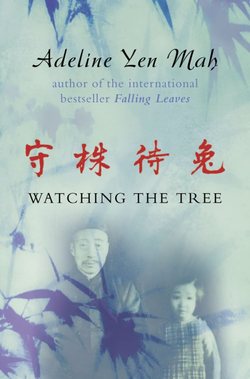Читать книгу Watching the Tree: A Chinese Daughter Reflects on Happiness, Spiritual Beliefs and Universal Wisdom - Adeline Mah Yen - Страница 7
Consulting the I Ching
ОглавлениеFrom time to time we all get stuck in difficult psychological situations. The Chinese recognised many centuries ago that the human mind is often over-burdened and confused. At those moments, the I Ching may offer a way out by providing a method of self-examination. Its hexagrams are symbols conveying messages which form the basis for meaning and substance in our human existence. These hexagrams can be randomly selected at any given moment. Each represents a specific instant in a continuous cycle of change. They explain and articulate certain inner truths about subjects which, on some occasions, many of us hate to admit or even think about: separation, divorce, death – and the attendant wills and legacies. My grandfather once told me that many elderly men of his father’s generation used to consult the I Ching before they wrote their wills.
In order to consult the I Ching properly and with a clear mind while avoiding the possibility of influence by the occult or the divine, one should follow a few simple rules:
Find a quiet, tidy room. Bathe and dress in comfortable clothes. Be alone. Lock the door. Take the phone off the hook.
Formulate your question to the I Ching carefully. Describe your problem or symptom. Spend time thinking about it. Write it down as succinctly and accurately as possible.
The number of the hexagram which will ‘answer’ your question can be found by either tossing a coin or dividing yarrow sticks. I recommend the latter – not because I believe in ‘black magic’ but because the ritual of dividing the sticks solemnises the occasion. It also takes longer. Coin-tossing takes about two minutes whereas dividing sticks may take from twenty to sixty minutes. During this time your mind should be concentrating on the question at hand. Some people burn incense to put themselves in the mood. The occasion should not be treated frivolously but with reverence and sincerity. It provides a period of self-examination and meditation, comparable to attending mass or going to confession.
If you can, use the Wilhelm/Baynes translation of the I Ching (published by Princeton University Press in 1990). Unfortunately, Chinese is a very imprecise language, without gender, tense or numbers. Classic Chinese as written in ancient times is particularly difficult to understand. What you get out of the I Ching depends very much on your personal interpretation of the translator’s explanations and commentaries on the hexagrams you have located in answer to your questions. The whole process is something like looking at Rorschach’s ink-blots. What you eventually see will be a projection of your own latent thoughts.
Contemplate and reflect on the hexagram you’ve arrived at and its interpretation. Consulting the I Ching is really an occasion for soul-searching and self-analysis. For believers, this is the time for your private conversation with God. For sceptics, this is an opportunity to have the candid dialogue with yourself which you have been avoiding. Use it to clarify your life and unearth your hidden motives. I recommend that you write down the I Ching’s conclusions and prescriptions on the same sheet of paper as your question. Even if no one ever reads it but you, you will find the whole writing process enormously satisfying and cathartic. For those who have been hurt and are in need of spiritual solace, contemplation and reflection are excellent alternatives to anti-depressants, sleeping pills, electric shock treatments or psychiatric counselling. (The process is certainly less costly.) In fact, this may be the world’s oldest method of self-administered bio-feedback, under the guidance of ancient Chinese wisdom.
The I Ching is not taught at school today and many Chinese have never heard of it. After that Sunday morning in Edinburgh, I myself never used it again, but doing research for this chapter brought back many memories. Did it help me? Definitely. Do I believe that my grandfather came back from the grave to guide me that day? No. However, going through the process of dividing the sticks and searching for the hexagram did make me examine truths I had not wished to acknowledge and provided me with a course of action I needed to follow.
